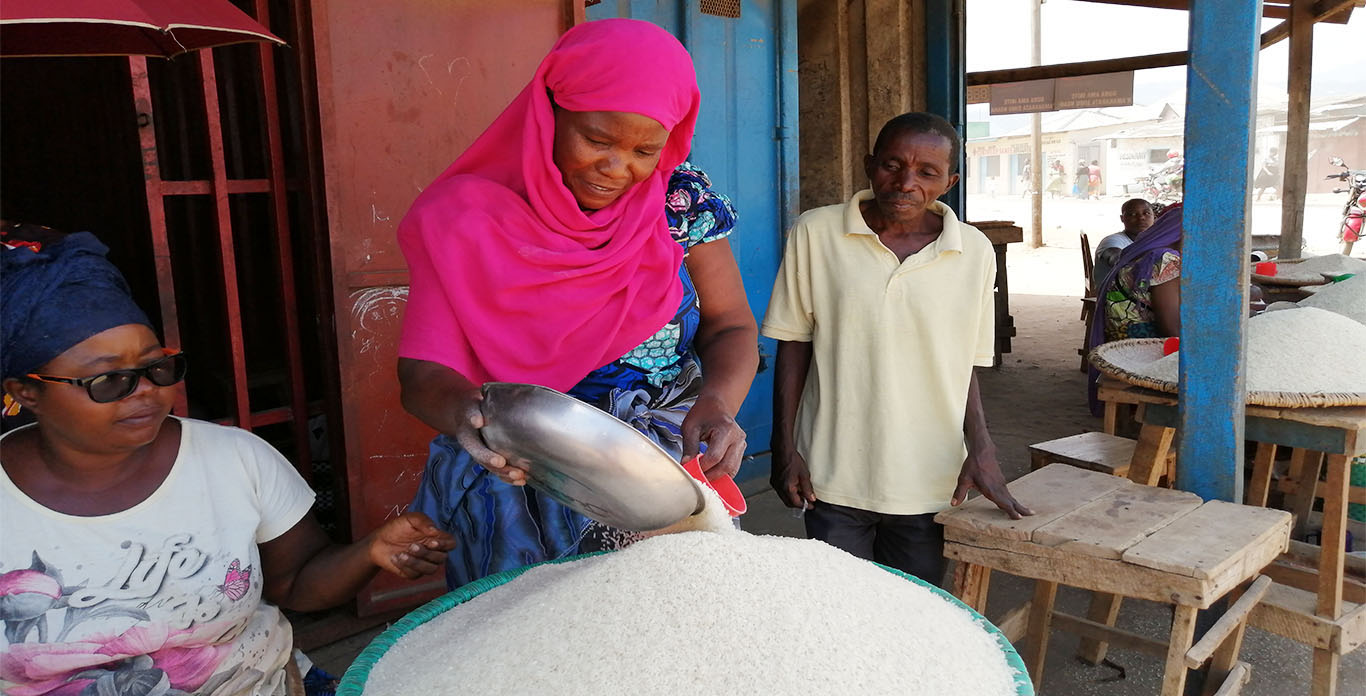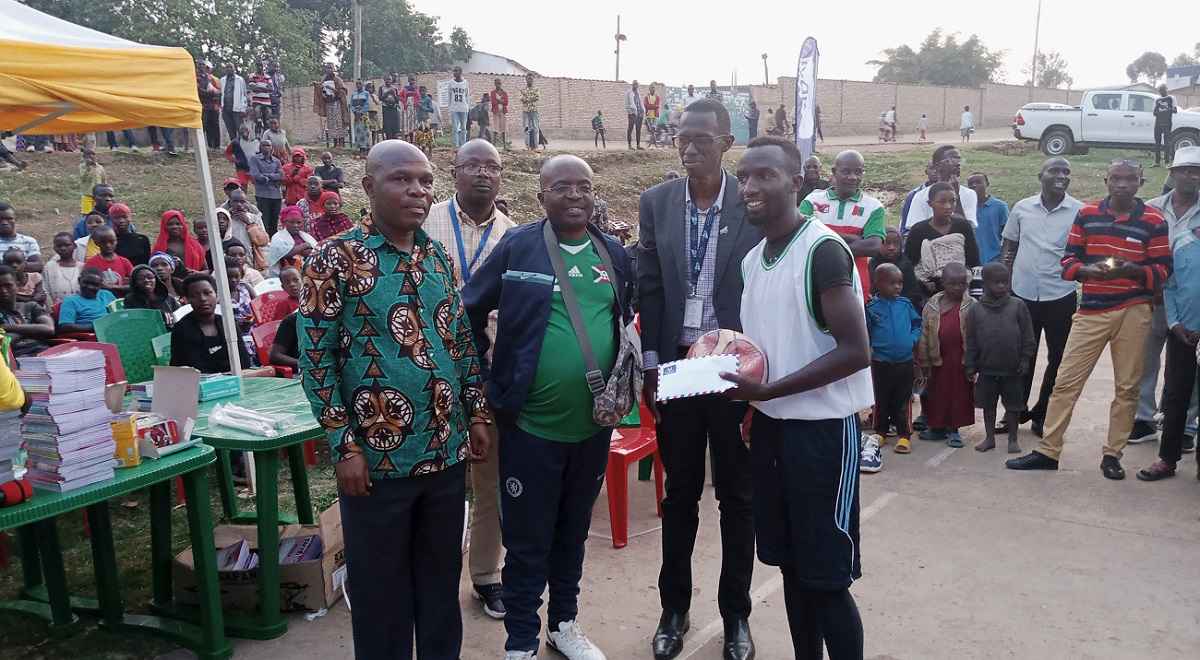
At the beginning of the Nurem project, Service Yezu Mwiza introduced the project through training on how to effectively set up and manage various profitable income-generating activities (IGAs) for its beneficiaries. Petty trading is one of the activities that some groups of beneficiaries have embarked on, with the aim of improving their living standards.
Before embarking on an entrepreneurial or commercial venture, it is imperative to properly define one's project and, above all, to know exactly which business to open. This is how one of the groups chose to open a rice business in Rubirizi in the Mutimbuzi commune.
“After attending this training on IGA management, Service Yezu Mwiza gave us a capital to start and we started buying unhulled rice from the Nurem project beneficiaries who practice rice farming as an IGA. This way we have the goods we want and they have an outlet for their harvest. This complementarity is also a good thing because it creates a kind of cohesion between all the members of the Nurem project. After the machine hulling we have two products to sell, the rice that we sell on the market but also the rice bran that we sell especially to pig breeders, hens and so on. Our business is flourishing. To begin with, we sold only 100kg over three months. But today, we sell more than 250kg of rice every two months. As they say, little by little the bird makes its nest, from the profits already obtained, we have been able to invest in the breeding of pigs, which are also multiplying”, says a beneficiary of the group.
“Personally, the fact that beneficiaries who started with Nurem project are thinking of selling their crops to those who joined the project this year, even though they are not obliged to do so, shows me that they have understood our lessons on social cohesion”, adds Ms. Jeanine, project manager.

However, this type of trade usually suffers from a seasonality because, sometimes fishing on Lake Tanganyika is interrupted so that the fish fauna replenish.
Thus Mrs Ashula found at the stalls of the ndagalas explained to us what their business consists of:
“When fishing has been profitable, the prices of small fish in the market are affordable. Otherwise, customers do not buy in large quantities. Despite all these challenges, we often manage to sell all the goods. Thanks to the income from this, we have been able to invest in goat breeding to diversify our activity, and we now have three goats”
.
“Before, I had no support and lacked enough to feed my children, taking ARV drugs was also difficult without eating. Thanks to the Yezu Mwiza Service, I and my family have recovered health and vitality,” she added.
SYM: Distribution of school kits to members of associations of people affected by leprosy

SYM: Sensitization on pre and post-exposure to HIV in Kayanza and Ngozi
SYM: Managing co-morbidities among people living with HIV
SYM: Quarterly meeting of community relays
Distribution of work tools to young volunteers and to the pillars of the SRH community solutions project called